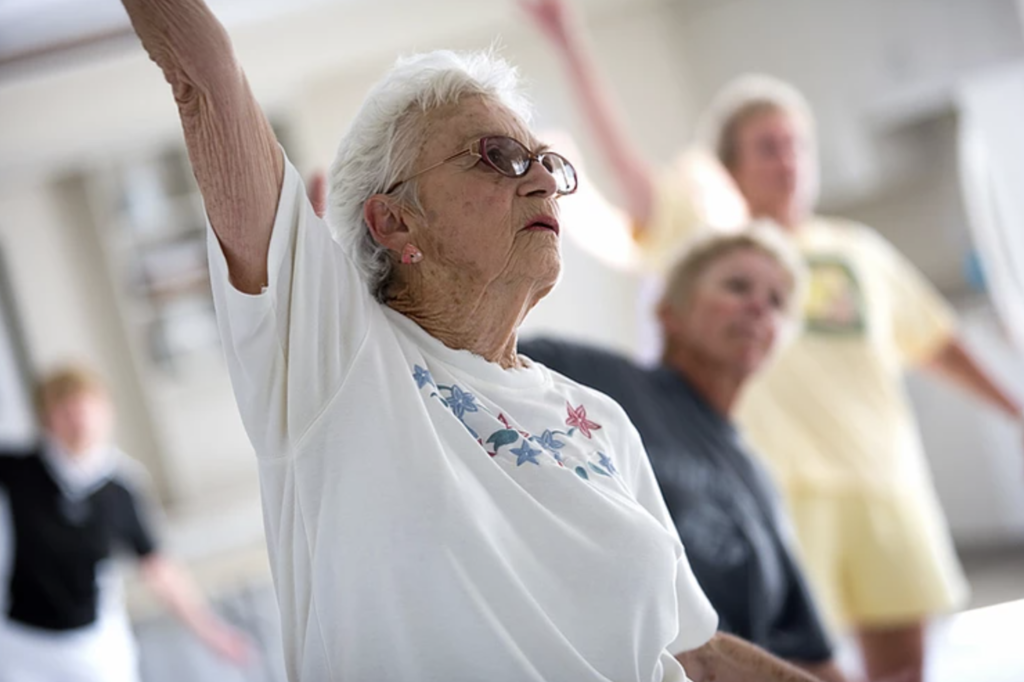For many women, approaching menopause is like going to the first day of school — you enter not knowing what to expect but have no choice but to go! Just like in school, however, with just a little preparation, you will come out even better on the other side.
As an Ob/Gyn who has treated countless patients going through menopause, here are my five tips to not only surviving, but conquering, menopause!
1. Eat a Healthy Diet

Many symptoms associated with menopause have non-modifiable risk factors. However, why not take advantage of what we can change? And one area that we can all modify is our diet. Hot flashes and osteoporosis are two concerns commonly facing women in menopause and both of these can be altered by our diet. Studies have demonstrated that overweight and obese women experience more hot flashes. Therefore, dietary changes leading to weight loss can help to reduce the number and intensity of hot flashes in these women. In addition, certain foods are known to be triggers for hot flashes. These include spicy foods, caffeine and alcohol. So, if you’re suffering from hot flashes, try limiting your intake of trigger foods. Calcium and vitamin D are known help with building and maintaining bone mineral density. As women enter menopause and the risk for osteopenia and osteoporosis increases, it is important that we consume foods rich in calcium and Vitamin D. Foods containing high levels of calcium include dairy products and green vegetables, such as collard greens, kale and broccoli. Vitamin D can be found in fatty fish, such as salmon and tuna, and in fortified breads and cereals. Just a few changes to our diets can significantly impact our menopausal experience!
2. Exercise Regularly

Exercise and maintaining a healthy weight during menopause decreases the risk for multiple cancers — including breast, endometrial and colon, strengthens your bones decreasing the risk for osteoporosis and decreases the risk for depression and cognitive decline. It is recommended that women do 30 – 45 minutes, three to four times per week of cardiovascular exercise and strength training at least twice weekly. Exercise, however, does not require a gym membership. Walking, running, biking, swimming and exercise videos can all be used for cardiovascular exercise. Similarly, handheld weights and resistance bands can be used for at-home strength training.
3. Exercise Your Mind

Just as cardiovascular exercises and strength training are good for your body, mental exercises are important for boosting your memory and focus. Sixty percent of women report memory problems as they go through menopause. Puzzles, card games and learning a new language are just a few of the ways you can work on sharpening your brain.
4. Be In Tune with your Body

Menopause is a time where women began to notice many changes in their bodies — changes in fat distribution, hair thinning and vaginal dryness. Being aware of all of these changes and recognizing what is normal versus abnormal is important. As we age, cancer diagnoses become more common. With cancer, the earlier the diagnosis typically the better the prognosis. Therefore, irregular vaginal bleeding, breast masses and abdominal bloating are just a few symptoms that are NOT a normal part of menopause and therefore should be evaluated by a physician.
5. Don’t suffer

I can’t tell you how many women come into my office for their “well woman exam” and during our conversation, I learn they’ve been living with hot flashes, vaginal dryness and mood changes. Know that you do not have to suffer. For symptoms such as vaginal dryness, there are effective over-the-counter therapies such as water-based vaginal moisturizers (e.g. Replens and Astroglide). For symptoms requiring medical treatment (e.g. mood changes), talk with your physician.
Menopausal symptoms last for an average of four to five years. That being said, I have seen an 85-year-old women still having hot flashes and other women who have never had a single symptom of menopause. Each stage of life will come with its own challenges. And while menopause may present its own unique set of challenges, use these tips to conquer this phase and embrace your tampon-free days ahead!

